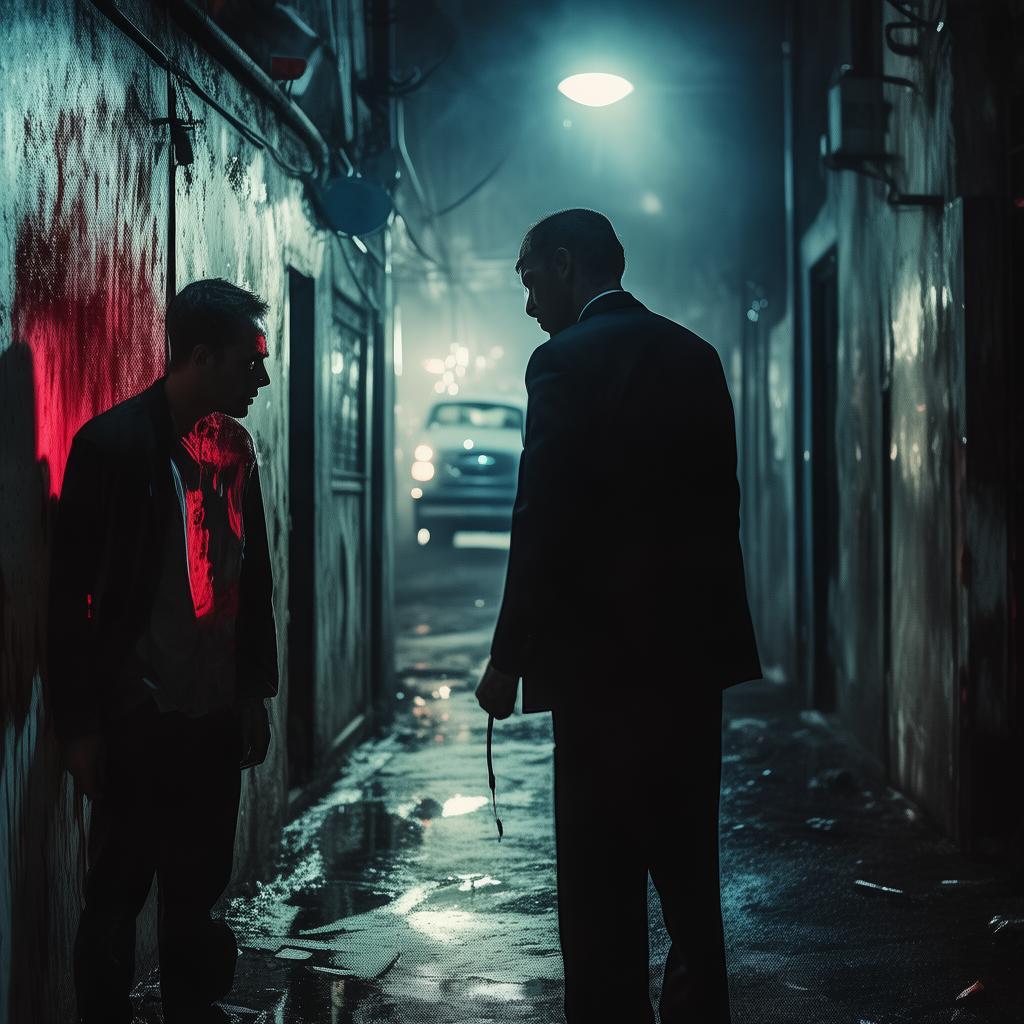The Shanghai Paradox: The Killer's Lethal Truth
The rain was relentless, hammering against the windows of the Shanghai apartment as if it were trying to wash away the city's secrets. Inside, Detective Li Wei sat at his desk, a mountain of case files spread before him. The city was in the grip of a serial killer, and Li was the only one who could stop him. But as he delved deeper into the case, he uncovered a paradox that threatened to unravel everything he knew.
The killer, known only as "The Shanghai Paradox," left no traces behind. His victims were all prominent figures in the city, and their deaths seemed to be a random act of violence. But as Li began to piece together the puzzle, he realized that the killer was using a unique method to communicate his presence. Each victim's death was accompanied by a cryptic message, a riddle that seemed to hint at a deeper truth.
Li's investigation led him to a small, dimly lit bar on the outskirts of the city. The bartender, a weathered man with a knowing smile, seemed to know more than he was letting on. "The killer's lethal truth is hidden in plain sight," the bartender said, his voice barely above a whisper. "You have to look beyond the surface."
Li's next lead was a young woman named Mei, a former student of a renowned philosopher who had vanished without a trace. Mei had been studying the killer's messages, trying to decipher their meaning. "The paradox is not just in the killer's identity," she explained, her eyes reflecting the urgency of her mission. "It's in the killer's message itself. He's trying to tell us something about ourselves."
As Li and Mei worked together, they discovered that the killer's messages were based on philosophical paradoxes. Each message pointed to a different individual in the city, suggesting that the killer was using them as pawns in a larger game. Li began to suspect that the killer was not just a serial murderer, but a mastermind with a hidden agenda.

The closer Li got to the truth, the more dangerous the situation became. The killer was growing impatient, and his messages were becoming more direct. "You are the next one," one message read, sent to a prominent businessman who had recently made a controversial deal. Li knew he had to act quickly, but he was running out of time.
The climax of the story came when Li and Mei confronted the killer in an abandoned warehouse on the outskirts of Shanghai. The killer, a man in his early forties with a calm, almost serene demeanor, revealed his true identity. He was a former philosophy professor who had been driven to madness by the city's greed and corruption. "I am the Shanghai Paradox," he said, his voice filled with a mix of sorrow and triumph. "I am the city's conscience."
In a dramatic twist, Li realized that the killer had been using the paradoxes to expose the city's darkest secrets. He had been a hero, not a villain, and his actions had been driven by a desire to bring justice to the city. As the police arrived, the killer surrendered without a fight, his mission complete.
The story ended with Li reflecting on the events that had unfolded. The Shanghai Paradox had exposed the city's deepest flaws, and while it had caused much pain and suffering, it had also sparked a conversation about change. Li looked out the window at the city, now bathed in the soft glow of dawn, and felt a sense of hope. The killer's lethal truth had been revealed, and with it, a chance for a new beginning.
In the aftermath, Shanghai began to heal. The city's leaders were forced to confront their actions and the impact they had on its citizens. The people of Shanghai realized that the paradox was not just a story of a killer, but a reflection of their own lives. And as they worked to rebuild, they carried with them the lessons learned from the Shanghai Paradox, a reminder that the truth, no matter how painful, is the only way to true progress.
✨ Original Statement ✨
All articles published on this website (including but not limited to text, images, videos, and other content) are original or authorized for reposting and are protected by relevant laws. Without the explicit written permission of this website, no individual or organization may copy, modify, repost, or use the content for commercial purposes.
If you need to quote or cooperate, please contact this site for authorization. We reserve the right to pursue legal responsibility for any unauthorized use.
Hereby declared.









